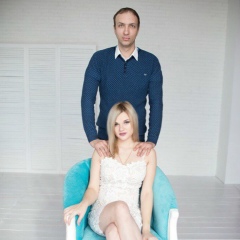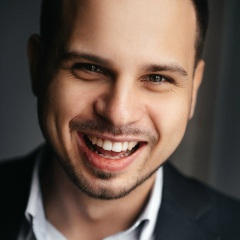https://facebook.com/298276320198577_3067633156596199
Пока компания ещё маленькая — каждый сотрудник в курсе того, кто что делает, и что происходит в компании в целом. По мере того, как компания растёт — растёт количество задач и увеличивается специализация. И вот уже есть люди, которые работают только над своим кусочком общего дела. Качество каждого кусочка непременным образом улучшается, но гораздо сложнее становится складывать эти кусочки в одно большое целое.
Вавилонская башня
В Библии есть рассказ, как люди в Вавилоне решили построить башню, чья вершина достигла бы неба. Но Бог не вынес такой дерзости и расстроил их замысел. Он смешал языки людей, так что один перестал понимать речь другого. Переставшие понимать друг друга люди так и не смогли достроить башню.
Каждая компания по мере своего роста превращается в Вавилонскую башню. Сотрудники разных отделов начинают думать только о своих локальных задачах и говорить на своём языке.
Разработчики считают, что все остальные вообще не понимают, чего хотят. Дизайнеры занимаются творчеством и просят им не мешать. Продакты улетели в космос и смотрят оттуда на всех сверху вниз. Маркетологи считают, что только «реклама — двигатель торговли». Продажники считают, что все остальные занимаются какой-то фигнёй.
Каждый отдел начинает считать, что он занимается своим отдельным делом и производит свой собственный продукт. Хотя, на самом деле, никаких отдельных продуктов нет. Компания производит только один продукт — тот, который она продаёт. Все сотрудники занимаются, на самом деле, только тем, что каждый на своём месте вносит свой вклад в создание и продажу этого продукта.
Учить язык продукта
Чтобы компания не становилась Вавилонской башней, все сотрудники компании должны уметь разговаривать на одном языке — языке создания продукта. У него может быть много диалектов — продуктовый менеджмент, продуктовый маркетинг, продуктовые продажи, продуктовый дизайн, продуктовая разработка. Но язык — один.
И не только уметь на нём разговаривать, но ещё и говорить друг с другом. Продакты с программистами. Продажники с продактами. Маркетологи с продажниками. Руководители — со всеми ними и друг с другом.
На низовых позициях непонимание продуктового языка может быть ещё не столь существенно. Но, по мере подъёма вверх по карьерной лестнице, необходимость владения этим языком становится критичной.
Рядовой программист ещё может просто кодить. Руководитель группы программистов уже должен понимать, что и зачем он делает с точки зрения создания продукта. Только это понимание поможет ему правильно расставлять приоритеты в планировании разработки.
Рядовой маркетолог ещё может заниматься только медиапланированием или подсчётом количества лайков в соцсетях. Продуктовый маркетолог должен понимать продукт настолько, чтобы уметь формулировать и проверять разные гипотезы ценности продукта для разных целевых аудиторий. Продуктовый маркетолог должен стать адвокатом дьявола потребителя в коммуникациях с продактами.
Рядовой продажник может думать только о количестве звонков, которые он сегодня должен сделать. Продуктовый продажник должен видеть полную картину воронки продаж и понимать, что она включает и маркетинг, и продажи. Маркетинг — это начальная часть воронки, которая начинается с широкого и безадресного захвата аудитории. Продажи — та часть воронки, на которой безадресный охват переходит в адресную работу с потребителем.
Рядовой дизайнер старается сделать красиво и удобно. Продуктовый дизайнер думает о том, как максимально просто и доступно донести до пользователя ценность продукта, как улучшить его экономические показатели. Для рядового дизайнера критерий изменения интерфейса — «стало ли красивее?». Для продуктового дизайнера — «увеличит ли это конверсию посетителя в покупателя?».
Известно, что большинство факапов в жизни совершается не по злому умыслу, а по глупости. «Не знал», «не понимал», «не подумал, к чему это приведёт».
То же самое и в бизнесе. Большинство ошибок сотрудники совершают не потому, что они злоумышленные диверсанты, а из-за незнания и непонимания. В решении важных задач, стоящих перед компанией, многие сотрудники не принимают участие только потому, что они либо не знают, что такие задачи вообще существуют, либо не осознают их важности.
Наши сотрудники — не дураки → https://moreynis.ru/normalbook-12/
P.S. Давно читаете Клуб директоров? У нас для вас спецпредложение → http://shtab.dirclub.ru/first
(Илья Рабченок)
Бизнес, стартапы, инвестиции. С опытом каждой стороны.
Пока компания ещё маленькая — каждый сотрудник в курсе того, кто что делает, и что происходит в компании в целом. По мере того, как компания растёт — растёт количество задач и увеличивается специализация. И вот уже есть люди, которые работают только над своим кусочком общего дела. Качество каждого кусочка непременным образом улучшается, но гораздо сложнее становится складывать эти кусочки в одно большое целое.
Вавилонская башня
В Библии есть рассказ, как люди в Вавилоне решили построить башню, чья вершина достигла бы неба. Но Бог не вынес такой дерзости и расстроил их замысел. Он смешал языки людей, так что один перестал понимать речь другого. Переставшие понимать друг друга люди так и не смогли достроить башню.
Каждая компания по мере своего роста превращается в Вавилонскую башню. Сотрудники разных отделов начинают думать только о своих локальных задачах и говорить на своём языке.
Разработчики считают, что все остальные вообще не понимают, чего хотят. Дизайнеры занимаются творчеством и просят им не мешать. Продакты улетели в космос и смотрят оттуда на всех сверху вниз. Маркетологи считают, что только «реклама — двигатель торговли». Продажники считают, что все остальные занимаются какой-то фигнёй.
Каждый отдел начинает считать, что он занимается своим отдельным делом и производит свой собственный продукт. Хотя, на самом деле, никаких отдельных продуктов нет. Компания производит только один продукт — тот, который она продаёт. Все сотрудники занимаются, на самом деле, только тем, что каждый на своём месте вносит свой вклад в создание и продажу этого продукта.
Учить язык продукта
Чтобы компания не становилась Вавилонской башней, все сотрудники компании должны уметь разговаривать на одном языке — языке создания продукта. У него может быть много диалектов — продуктовый менеджмент, продуктовый маркетинг, продуктовые продажи, продуктовый дизайн, продуктовая разработка. Но язык — один.
И не только уметь на нём разговаривать, но ещё и говорить друг с другом. Продакты с программистами. Продажники с продактами. Маркетологи с продажниками. Руководители — со всеми ними и друг с другом.
На низовых позициях непонимание продуктового языка может быть ещё не столь существенно. Но, по мере подъёма вверх по карьерной лестнице, необходимость владения этим языком становится критичной.
Рядовой программист ещё может просто кодить. Руководитель группы программистов уже должен понимать, что и зачем он делает с точки зрения создания продукта. Только это понимание поможет ему правильно расставлять приоритеты в планировании разработки.
Рядовой маркетолог ещё может заниматься только медиапланированием или подсчётом количества лайков в соцсетях. Продуктовый маркетолог должен понимать продукт настолько, чтобы уметь формулировать и проверять разные гипотезы ценности продукта для разных целевых аудиторий. Продуктовый маркетолог должен стать адвокатом дьявола потребителя в коммуникациях с продактами.
Рядовой продажник может думать только о количестве звонков, которые он сегодня должен сделать. Продуктовый продажник должен видеть полную картину воронки продаж и понимать, что она включает и маркетинг, и продажи. Маркетинг — это начальная часть воронки, которая начинается с широкого и безадресного захвата аудитории. Продажи — та часть воронки, на которой безадресный охват переходит в адресную работу с потребителем.
Рядовой дизайнер старается сделать красиво и удобно. Продуктовый дизайнер думает о том, как максимально просто и доступно донести до пользователя ценность продукта, как улучшить его экономические показатели. Для рядового дизайнера критерий изменения интерфейса — «стало ли красивее?». Для продуктового дизайнера — «увеличит ли это конверсию посетителя в покупателя?».
Известно, что большинство факапов в жизни совершается не по злому умыслу, а по глупости. «Не знал», «не понимал», «не подумал, к чему это приведёт».
То же самое и в бизнесе. Большинство ошибок сотрудники совершают не потому, что они злоумышленные диверсанты, а из-за незнания и непонимания. В решении важных задач, стоящих перед компанией, многие сотрудники не принимают участие только потому, что они либо не знают, что такие задачи вообще существуют, либо не осознают их важности.
Наши сотрудники — не дураки → https://moreynis.ru/normalbook-12/
P.S. Давно читаете Клуб директоров? У нас для вас спецпредложение → http://shtab.dirclub.ru/first
(Илья Рабченок)
Бизнес, стартапы, инвестиции. С опытом каждой стороны.
https://facebook.com/298276320198577_3067633156596199
While the company is still small - every employee is aware of who does what and what happens in the company as a whole. As the company grows, the number of tasks grows and specialization increases. And now there are people who work only on their piece of the common cause. The quality of each piece will certainly improve, but it becomes much more difficult to put these pieces into one big whole.
Tower of babel
The Bible has a story about how people in Babylon decided to build a tower whose peak would reach the sky. But God could not stand such impudence and upset their plan. He mixed the languages of people, so that one ceased to understand the speech of the other. People who ceased to understand each other could not finish building the tower.
Each company, as it grows, turns into the Tower of Babel. Employees of different departments begin to think only about their local tasks and speak their language.
The developers believe that everyone else does not understand what they want at all. Designers are engaged in creativity and ask them not to interfere. Products flew into space and look from there at all from top to bottom. Marketers believe that only "advertising is the engine of trade." Sales people believe that everyone else is engaged in some garbage.
Each department begins to believe that it is engaged in its own separate business and produces its own product. Although, in fact, there are no separate products. A company produces only one product - the one that it sells. All employees are, in fact, engaged only in the fact that each in his own place contributes to the creation and sale of this product.
Learn product language
So that the company does not become the Tower of Babel, all company employees must be able to speak the same language - the language of the product. It can have many dialects - product management, product marketing, product sales, product design, product development. But the language is one.
And not only be able to talk on it, but also talk to each other. Products with programmers. Salesmen with products. Marketers with salespeople. Leaders are with all of them and with each other.
At the grassroots position, a misunderstanding of the grocery language may not yet be so significant. But, as you climb up the career ladder, the need to master this language becomes critical.
The average programmer can still just code. The head of a group of programmers should already understand what and why he is doing in terms of creating a product. Only this understanding will help him correctly prioritize development planning.
An ordinary marketer can only deal with media planning or counting the number of likes on social networks. A product marketer should understand the product in such a way as to be able to formulate and test different hypotheses of product value for different target audiences. A product marketer should become a consumer devil advocate in communications with products.
An ordinary salesperson can only think about the number of calls that he has to make today. A grocery salesman needs to see the full picture of the sales funnel and understand that it includes both marketing and sales. Marketing is the initial part of the funnel, which begins with a wide and addressless capture of the audience. Sales - that part of the funnel in which addressless coverage goes into targeted work with the consumer.
An ordinary designer tries to make it beautiful and comfortable. A product designer thinks about how to convey the value of a product to a user as simply and easily as possible, and how to improve its economic performance. For the average designer, the criterion for changing the interface is “has it become more beautiful?”. For the product designer, “will this increase the conversion of the visitor to the buyer?”
It is known that most fakaps in life are performed not out of malice, but out of stupidity. “I didn’t know,” “I didn’t understand,” “I didn’t think what it would lead to.”
The same is true in business. Most of the mistakes employees make are not because they are malicious saboteurs, but because of ignorance and misunderstanding. Many employees do not participate in solving important tasks facing the company simply because they either do not know that such tasks exist at all or do not realize their importance.
Our employees are not fools → https://moreynis.ru/normalbook-12/
P.S. Have you read the Directors Club for a long time? We have a special offer for you → http://shtab.dirclub.ru/first
(Ilya Rabchenok)
Business, startups, investments. With the experience of each side.
While the company is still small - every employee is aware of who does what and what happens in the company as a whole. As the company grows, the number of tasks grows and specialization increases. And now there are people who work only on their piece of the common cause. The quality of each piece will certainly improve, but it becomes much more difficult to put these pieces into one big whole.
Tower of babel
The Bible has a story about how people in Babylon decided to build a tower whose peak would reach the sky. But God could not stand such impudence and upset their plan. He mixed the languages of people, so that one ceased to understand the speech of the other. People who ceased to understand each other could not finish building the tower.
Each company, as it grows, turns into the Tower of Babel. Employees of different departments begin to think only about their local tasks and speak their language.
The developers believe that everyone else does not understand what they want at all. Designers are engaged in creativity and ask them not to interfere. Products flew into space and look from there at all from top to bottom. Marketers believe that only "advertising is the engine of trade." Sales people believe that everyone else is engaged in some garbage.
Each department begins to believe that it is engaged in its own separate business and produces its own product. Although, in fact, there are no separate products. A company produces only one product - the one that it sells. All employees are, in fact, engaged only in the fact that each in his own place contributes to the creation and sale of this product.
Learn product language
So that the company does not become the Tower of Babel, all company employees must be able to speak the same language - the language of the product. It can have many dialects - product management, product marketing, product sales, product design, product development. But the language is one.
And not only be able to talk on it, but also talk to each other. Products with programmers. Salesmen with products. Marketers with salespeople. Leaders are with all of them and with each other.
At the grassroots position, a misunderstanding of the grocery language may not yet be so significant. But, as you climb up the career ladder, the need to master this language becomes critical.
The average programmer can still just code. The head of a group of programmers should already understand what and why he is doing in terms of creating a product. Only this understanding will help him correctly prioritize development planning.
An ordinary marketer can only deal with media planning or counting the number of likes on social networks. A product marketer should understand the product in such a way as to be able to formulate and test different hypotheses of product value for different target audiences. A product marketer should become a consumer devil advocate in communications with products.
An ordinary salesperson can only think about the number of calls that he has to make today. A grocery salesman needs to see the full picture of the sales funnel and understand that it includes both marketing and sales. Marketing is the initial part of the funnel, which begins with a wide and addressless capture of the audience. Sales - that part of the funnel in which addressless coverage goes into targeted work with the consumer.
An ordinary designer tries to make it beautiful and comfortable. A product designer thinks about how to convey the value of a product to a user as simply and easily as possible, and how to improve its economic performance. For the average designer, the criterion for changing the interface is “has it become more beautiful?”. For the product designer, “will this increase the conversion of the visitor to the buyer?”
It is known that most fakaps in life are performed not out of malice, but out of stupidity. “I didn’t know,” “I didn’t understand,” “I didn’t think what it would lead to.”
The same is true in business. Most of the mistakes employees make are not because they are malicious saboteurs, but because of ignorance and misunderstanding. Many employees do not participate in solving important tasks facing the company simply because they either do not know that such tasks exist at all or do not realize their importance.
Our employees are not fools → https://moreynis.ru/normalbook-12/
P.S. Have you read the Directors Club for a long time? We have a special offer for you → http://shtab.dirclub.ru/first
(Ilya Rabchenok)
Business, startups, investments. With the experience of each side.

У записи 1 лайков,
0 репостов,
140 просмотров.
0 репостов,
140 просмотров.
Эту запись оставил(а) на своей стене Илья Рабчёнок






















